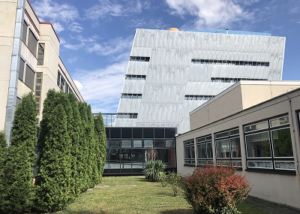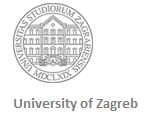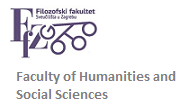Home » 9. semestar i naslovni – SMJER PREVODITELJSTVO
Category Archives: 9. semestar i naslovni – SMJER PREVODITELJSTVO
Translation and Intercultural Communication
Course title: Translation and Intercultural Communication Instructor: Dr. Snježana Veselica Majhut ECTS credits: 5 Language: English and Croatian Semester: 1st and 3rd term of graduate studies Status: elective Form of instruction: two lectures and one seminar per week + e-learning Assessment: continuous assessment components (50 per cent) and a term paper (50 per cent) OBJECTIVES: After finishing this […]
Pragmatics-archive
Course title: PragmaticsInstructor: Mateusz-Milan StanojevićECTS credits: 5Language: EnglishSemester: 9th (winter)Status: electiveForm of Instruction: 1 lecture + 2 seminars per weekExamination: writtenCourse description: This course deals with various issues in pragmatics, such as illocution and perlocution, various types of communicative interaction, speech acts, text functions, etc., with special emphasis on their relevance in the translation process.Objectives: […]
Areas of the Translation Profession
SYLLABUS Course title: Areas of the Translation Profession Instructors: Dr. Kristijan Nikolić, Dr. Anda Bukvić Pažin ECTS credits: 5 Status: mandatory Semester: 3rd Enrollment requirements: The students must pass the exam in either Political and Legal Institutions in Croatia and English Speaking Countries or EU and International Organizations prior to enrolling in this course. Course description: The course is designed to familiarize […]
Cognitive linguistics and translation
Course title: Cognitive linguistics and translation Course coordinator: Mateusz-Milan Stanojević Instructors: Mateusz-Milan Stanojević; Milena Žic Fuchs; Janja Čulig Suknaić ECTS credits: 5 Language: English and Croatian Semester: 3rd (winter) Status: compulsory for students studying translation as a single major, elective for students studying translation as a double major program Form of Instruction: 1 lecture and […]
Pragmatics
Course title: Pragmatics Instructors: Dr. Mateusz-Milan Stanojević; Dr. Marina Grubišić ECTS credits: 5 Language: English Semester: 3rd (winter) term of graduate studies Status: elective Form of Instruction: 1 lecture + 2 seminars per week Examination: written Course description: This course deals with issues in pragmatics, particularly locution, various types of communicational interaction, speech acts, text […]
Lexicology and Lexicography (archive)
Course title: Lexicology and LexicographySummer term 2012-2013ECTS 5 pointsCourse convenor: Professor Milena Žic FuchsLecturer: Vlatko BrozLanguage: EnglishTerm: First term of graduate studiesRequisites: Attending this course does not require any requisites, except being enrolled in the term in which the course is given.Course format: 2 lecture classes and 2 seminar classes a weekObjective: Gaining an […]



